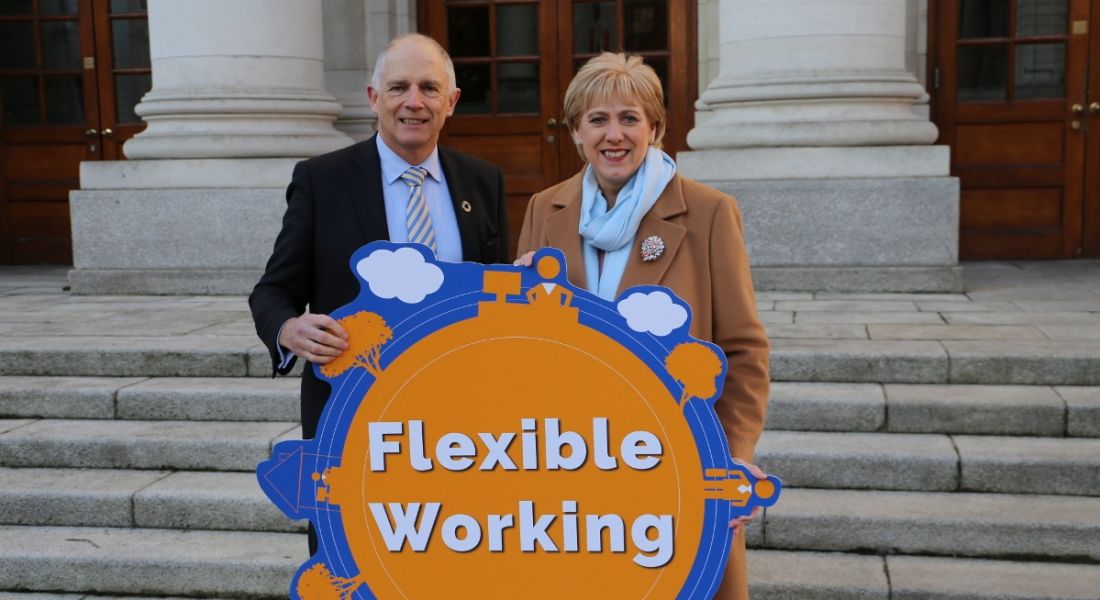The Government is seeking public opinion for the development of a policy on flexible working arrangements in Ireland.
The Government today (11 December) officially launched a public consultation for creating new flexible working policies. The initiative falls under the Future Jobs Ireland strategy, which was launched in March of this year in a bid to secure better quality and more sustainable jobs for the country.
The consultation was opened by Minister for Business, Enterprise and Innovation Heather Humphreys, TD, and Minister of State with responsibility for Equality, Immigration and Integration David Stanton, TD, in Government buildings this morning.
Its purpose is to gather perspectives from employers, employees, trades unions and the wider public on different flexible working arrangements already in place around the country, from shorter work weeks to parental leave. Ideas and advice on any changes that respondents would like to see are also being welcomed.
‘Buy-in from businesses’
At the launch, Humphreys said: “As we approach full employment, we need to be more creative about how we look at the world of work.
“Flexible working has the potential to bring huge benefits to employers and employees alike. It can improve work-life balance and make things a bit easier for families. It can also help businesses to attract and retain staff in an increasingly competitive labour market.
“Obviously, however, any new Government policy needs to have buy-in from businesses in the first instance, which is why we want to hear their views, together with the views of workers, to decide the best way forward.”
According to the Government, flexible working options may include:
- Starting or finishing work at differing times
- Working compressed hours
- Having access to flexi-time
- Being able to work remotely
- Having the right to disconnect outside work hours
- Access to part-time or shared working options
For anyone seeking to have their say on flexible working for Ireland, the details of the consultation and guidelines for submissions are available online. The closing date is 31 January 2020.
The flexible working timeline
The consultation’s opening is the latest in a series of actions taken by the Government to prepare for the future of work.
In July, there was a consultation forum on remote working, where increasing participation in the labour force was identified as a key priority in the Future Jobs Ireland plan, with a focus on flexible working solutions and affordable childcare services.
At the time, Humphreys said: “The world of work is changing and technological and digital advances present us with new opportunities, particularly in rural Ireland.
“Remote working can breathe life into our towns and villages right across the country by allowing people to work and live where they’re from. It can also take pressure off our cities and bring environmental benefits with reduced commuting times.”
In August, the Government set about examining the feasibility of the ‘right to disconnect’ for Ireland. Implementing this would put in place legal rights for workers to disengage from emails and other communications outside of working hours – an initiative introduced in France in 2017 in an attempt to mitigate the blurring of work-life balance.
Meanwhile, last month, Taoiseach Leo Varadkar and Humphreys convened a group of 200 stakeholders to discuss progress on plans for “new modes of working”.




